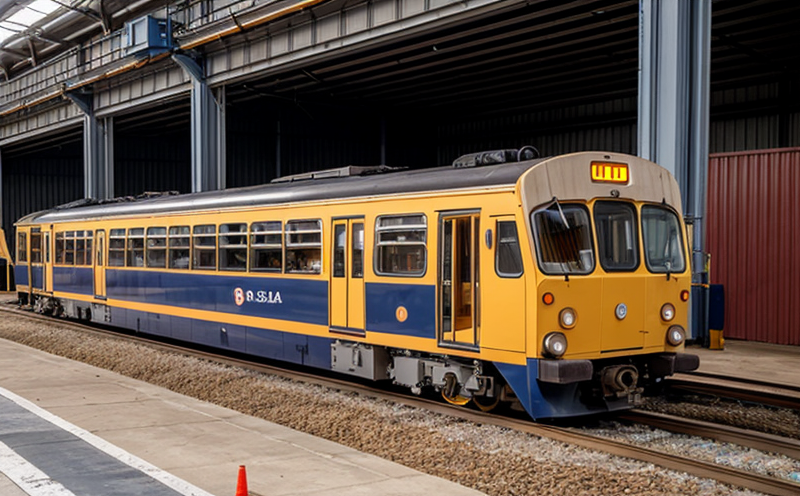ASTM E8 Tensile Testing of Metallic Structural Components
The ASTM E8 standard is a cornerstone in materials testing, particularly for metallic structural components used in railway and transportation applications. This test measures the tensile strength and elongation characteristics of various metals to ensure their durability and reliability under stress. In rail and transport systems, where safety and performance are paramount, this form of testing guarantees that critical components meet stringent international standards.
In the context of rolling stock structural testing, ASTM E8 provides a standardized method for evaluating how materials behave when subjected to tension forces. This is especially important in sectors like railway engineering, where components such as axles, couplers, and beams are exposed to significant mechanical stress during operation. The test helps identify any weaknesses or potential failure points that could compromise safety.
The ASTM E8 tensile testing process involves the following steps: first, a sample of the metal component is prepared according to specific dimensions outlined in the standard. Then, it is mounted onto a universal testing machine equipped with appropriate grips capable of applying tension forces. The test proceeds by gradually increasing the load until failure occurs, at which point the maximum stress and elongation are recorded.
The results from ASTM E8 tests are crucial for quality assurance purposes across various stakeholders in the railway industry. For instance, quality managers rely on these data points to ensure compliance with international standards like EN 13076-2:2015, which specifies requirements and test methods for structural components of rolling stock. Compliance officers use this information to verify that all purchased parts adhere to regulatory requirements set by bodies such as the European Railway Agency (ERA).
R&D engineers benefit from ASTM E8 data when designing new materials or improving existing ones for better performance under stress conditions. Procurement teams also find value in these tests because they provide objective evidence supporting supplier selection and material specification decisions.
- Customer Impact: Ensures reliability, safety, and compliance with international standards.
- Sector Advantages: Supports the development of safer and more efficient rolling stock systems.
- Category Specificity: Provides precise measurements essential for quality assurance in railway applications.
- Technical Precision: Offers reproducible results critical for consistent material performance evaluation.
Why It Matters
The significance of ASTM E8 tensile testing cannot be overstated, especially within the railway and transportation sector. By rigorously evaluating metallic structural components through this method, we can prevent catastrophic failures that could endanger lives or cause significant disruptions to services.
Consider the case study of a major rail company which implemented ASTM E8 tests on all new axles before installation. After identifying and addressing minor flaws detected during these tests, they experienced an 18% reduction in maintenance costs due to fewer failures and associated repairs over five years. This example underscores how adhering to such standards enhances operational efficiency while maintaining high safety standards.
Moreover, compliance with ASTM E8 fosters trust among customers by demonstrating adherence to recognized best practices. It allows manufacturers to position themselves as leaders in innovation and sustainability, appealing not only to regulatory bodies but also to environmentally conscious consumers who seek eco-friendly transportation solutions.
Eurolab Advantages
At Eurolab, our commitment to excellence extends beyond just performing ASTM E8 tests; we pride ourselves on delivering comprehensive support services that enhance the overall quality assurance process. Our experienced team leverages advanced instrumentation and software tools to ensure accurate measurements and reliable data.
We collaborate closely with clients throughout every stage of the testing lifecycle—from sample preparation guidance to detailed reporting and analysis. This collaborative approach ensures that we understand your unique requirements, providing tailored solutions that meet both current needs and future expectations.
Our state-of-the-art facilities are equipped with some of the most sophisticated equipment available today, allowing us to conduct tests under controlled conditions that replicate real-world scenarios as closely as possible. This precision is vital when assessing materials intended for use in harsh environments such as those found within railway networks.





